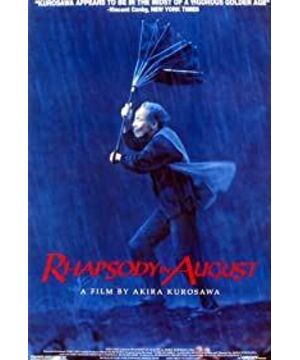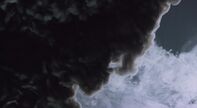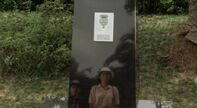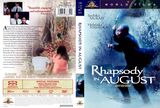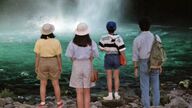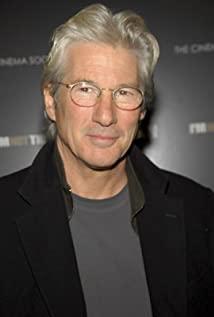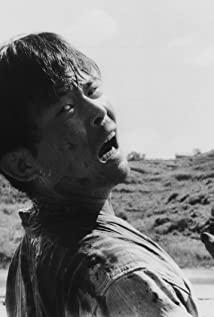There are three things that impressed me about this movie:
1. Visualize the turmoil, misreading, communication and understanding of Eastern and Western cultures
(1) The lack of anti-war memory and the new generation, the open space, the large panorama, the overlook and the individual's insignificance and powerlessness in the disappearing city and the disappearing historical memory
(2) "Tatami Perspective", the chamber architecture and composition of traditional Japanese houses, and the presentation of family affection and emotional tendencies...
2. When the music flows, the past and present under the sadness and hope reflect
In general, the solemn and solemn journey of retrospecting history and anti-war thinking were carried out under the activities of "country summer vacation" and "grandmother's house". The raw cruelty of war.
I'm impressed with a song by Vivaldi here (it's probably my favorite baroque classic after the Four Seasons suite), played on both of the city's historical tours, the second When the children and Clark were at school together, they met children who were playing happily, and a group of elderly people who came to shed their hair to mourn. At this time, the foreground sound was muted and silent, and the bright children's voice in the background sound seemed like pure nature. , The real flow and the historical reincarnation expressed by the sound and picture are very beautiful. The baroque music that entered this solemn moment is also the right time. This paragraph is very touching~~
3. Akira Kurosawa's time carving, rhythm and integrity
For example, the repetition of the song "Wild Rose": the solo singing at the beginning, the sound of the child's voice when the old piano is repaired, the ants seen on the grandfather's anniversary, the wild rose in the song, and the ending.
4. The end of the rain
There are two scenes of grandma running in the rain with an umbrella. One is when the grandchildren return from a trip to the city and see the white-clothed and white-umbrella grandma in the green field alone in the rain, waiting for them to return. It is very soft and shows the immersion in the trend of western culture and urbanization. Children's return to their own memories. The other is the day when the grandmother in black with a black umbrella mistakenly thought it was the nuclear bombing of Nagasaki after being mentally stimulated at the end, she ran against the wind and rain, followed by her red-clothed grandson and other children who were chasing her, and then there were her fathers, black cloth umbrellas The moment when she couldn't hold it was the moment when the "Wild Rose" ballad sounded. Here, a splendid song was used to dispel the historical heaviness of grandma's walking alone figure, and bring a kind of "lightness to her body" to her retrograde. The feeling of "like a swallow" reminds me of a wonderful sense of detachment brought about by the contrast and dissolution between the musical mood at the end of Fellini's film "Nights of Cabiria" and the theme mood of the film.
5. Some suitable symbols and images
(1) Grandson's wholehearted restoration of grandfather's transposed old piano - looking for a way to repair historical memory and trauma
(2) The use of English and Japanese, as well as the writing of Chinese characters, Western and Eastern food
(3) Appreciating the moon - grandpa, grandma and grandchildren, grandma and Clark - the process of sharing human history, mutual understanding, forgiveness and responsibility.
(4) Listening to grandma telling the magical things in the past stories - "the burnt tree that committed suicide" and the person who eloped and hid; the person who draws eyes insomnia (trauma after the nuclear explosion of the mushroom cloud)
(5) Three generations of people's three mentality and history-oriented mind.
View more about Rhapsody in August reviews


